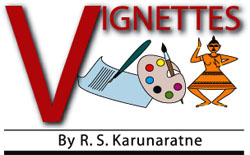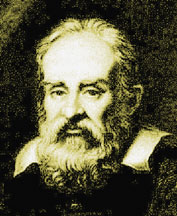
The earth moves just the same
Modern astronomy, one of the sublime of sciences, owes a great
gratitude to Galileo Galilee who lived in Italy from 1564 to 1642. The
Italian astronomer and philosopher was born in Pisa on 15 February 1564.
We remember Galileo in the 21st century for two reasons. Firstly,
Galileo's contribution to astronomy in particular and science in general
is phenomenal. Secondly, he was an astronomer who was thoroughly
misunderstood during his time. Galileo was not only one of the greatest
of scientific pioneers, but also an astronomer who showed us a new
world. In fact, he paved the way for Newton.
Galileo was a promising student who showed signs of genius at a very
young age. Young Galileo used to make little instruments and pieces of
machinery that baffled his friends. He was admitted to the University of
Pisa in 1581 as a student of art. While studying medicine Galileo
devoted his time and energy for geometry. Greek mathematician Archimedes
had a profound influence on Galileo. However, he crossed swords with
another Greek philosopher Aristotle. Galileo found certain `absurdities'
in Aristotle's theories. This provoked the followers of Aristotle in
Italy. Despite such opposition, he was appointed as the Professor of
Mathematics at the same university.
Galileo did not confine his findings to theory. He did experiments
and showed that his theories are tenable. For instance, Aristotle
believed that the heavier of two objects would hit the ground before the
other. Galileo proved that all objects falling through the same height
would hit the ground at the same time. To prove his theory, he dropped
two objects of equal weight from the top of the leaning tower of Pisa.
Unimpressed by such scientific experiments, his detractors plotted to
overthrow him from the professor's post. When he resigned from the post
he was appointed as a professor at a university in Padua.
He invented the modern telescope in 1609 and began to study the
heavenly bodies. People from all walks of life flocked to his house to
see the marvellous instrument.
One day he had been detained by a large crowd in the street for more
than six hours because everybody wanted to use the wonderful instrument.
 |
|
Galileo Galilee |
At this time a new object appeared in the sky. Some astronomers saw
it as a meteor. Using his newly invented telescope Galileo proved that
it was not a meteor, but a star beyond the known solar system. Although
the telescope made him famous in the ancient world, it also brought him
some misery. When he published his findings after laborious experiments
using the telescope, he was branded a heretic. It was at this time the
church took a stand against him.The whole conflict between Galileo and
the church arose out of his defence and teaching of the heliocentric
theory.
According to this theory, the sun remains a fixed object and the
earth is in motion. The accepted theory at that time was that of Ptolemy
who said that everything revolved round the earth. The church too found
that Galileo's theory was going against the Holy Scripture. It said that
Galileo's proposition was "absurd in philosophy." He was soon summoned
to the palace of Cardinal Bellarmin and was officially warned not to
"hold, teach or defend" the condemned doctrine. While he was being taken
from the palace, Galileo said, "Eppur si muove" (But it moves just the
same!) meaning that the earth moves round the sun.
In 1632 Galileo published "The Dialogue of the Two Principal Systems
of the World" and created quite a stir in the establishment. When he was
summoned before the Inquisition of Rome, he tried to defend his theory.
However, he was forced to admit his "fault" and was sentenced to
imprisonment. Fortunately, he was allowed to retire to his own villa at
Arceti instead of being taken to the prison. For more than seven years
he remained silent leading a life of studious retirement.
Although he was getting old, Galileo did not give up writing. At one
stage he went blind and dictated his theories to his students. However,
he could not hold on to life for long. He was struck down by a slow
fever in 1642.
After 367 years of his death, the church has formally pardoned
Galileo for his "absurd philosophy". However, today we remember Galileo
because he was a leading astronomer who revolutionised the world of
science. He found mountains on the moon, the ring of Saturn and the
spots on the sun. |

